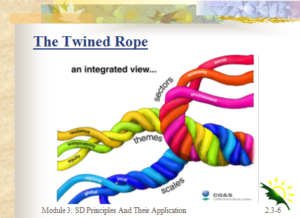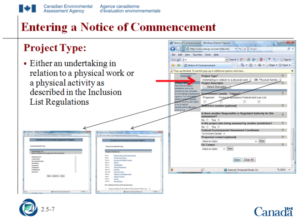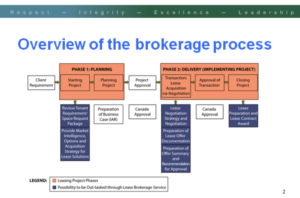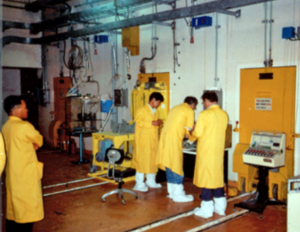As new technology-assisted learning approaches have been introduced, face-to-face training has undergone a transformation of its own. Today, presentations, seminars and workshops focus on what they do best: bringing peers together; building teams; introducing senior executives and subject matter experts to newcomers; providing hands-on access to equipment; engaging participants in role-plays and collaborative problem solving; and much more. In a blended learning environment, technology-assisted learning and support complements face-to-face training, ensuring that learners benefit from the best of both worlds.
Classroom-based Seminars
The Need

GAC is committed to sustainable development principles, which it promotes internationally and practices internally. One dimension of this commitment is a constant search for ways to “green” its own operations. To that end, it sought help in developing a training program that would engage Canadian and locally hired staff at Canadian embassies, missions and satellite offices around the world in finding location-appropriate sustainable operating practices.
Approach
Androcom was engaged to develop a suite of seminar-based learning modules that could be used in half- and full-day programs for three distinct occupational groupings – administrative officers, political/aid officers, and trade/economic officers. Delivered through the use of leader-led presentations, three “core” modules and separate modules geared to the needs of occupational groups each consist of several short lessons dealing with specific subject areas, interspersed with group exercises, questions, discussion and feedback tailored to local issues and opportunities.
Hands-on Software Training

The Need
An important aspect of CEAA’s approach is public reporting on the ongoing status of each assessment. To make this possible, data is entered into the CEA Registry, a sophisticated database program, as new assessments are launched and as milestones are reached. This requires data-entry training for designated staff.
Approach
Androcom was engaged to develop a one-day, four-module training program to introduce data-entry clerks to the Registry, explain data-entry procedures, and provide supervised hands-on experience in entering and updating data. Training takes place in a classroom equipped with Internet-connected laptops. Short presentations featuring live demonstrations of procedures are interspersed with application exercises followed by group discussion and participative quizzes in which the group decides on correct answers.
A Workgroup Approach to Learning

The Need
When Public Works and Government Services Canada embarked on an initiative to supplement in-house leasing expertise with private sector brokerage services, it was understood that training and support tools would be needed for leasing staff tasked with managing outsourced brokerage assignments.
Approach
After consultations with the targeted learners, Androcom developed a face-to-face training approach based on a workgroup model. Beginning with presentations by subject matter experts followed by Q&As covering key processes and resources, participants were divided into groups to tackle case studies based on common leasing scenarios. The full group then reconvened to review and comment on each workgroup solution.
Field Procedures Training
The Need

In recent years, a number of new verification techniques have been introduced to bolster the IAEA’s ability to detect undeclared nuclear activities. Particularly effective is environmental sampling, which captures minute radioactive particles deposited in and around nuclear facilities for laboratory analysis. Initial training – and periodic refresher training – is required for the inspectors who conduct such sampling.
Approach
Androcom was engaged to develop classroom-based theory and procedures training, supplemented by hands-on practice supervised by experienced inspectors. Refresher training is provided by a self-paced multimedia program accessed by inspectors on DVD or on a secure Intranet site.